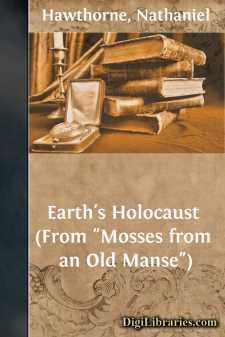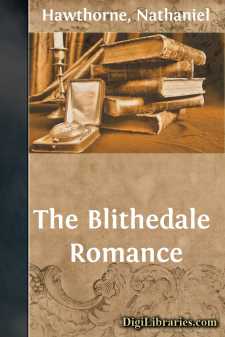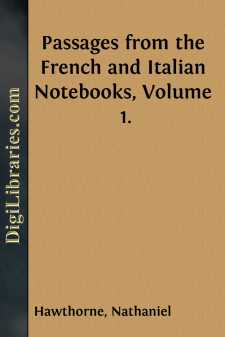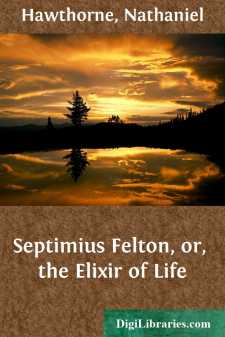Categories
- Antiques & Collectibles 13
- Architecture 36
- Art 48
- Bibles 22
- Biography & Autobiography 813
- Body, Mind & Spirit 142
- Business & Economics 28
- Children's Books 12
- Children's Fiction 9
- Computers 4
- Cooking 94
- Crafts & Hobbies 4
- Drama 346
- Education 46
- Family & Relationships 57
- Fiction 11828
- Games 19
- Gardening 17
- Health & Fitness 34
- History 1377
- House & Home 1
- Humor 147
- Juvenile Fiction 1873
- Juvenile Nonfiction 202
- Language Arts & Disciplines 88
- Law 16
- Literary Collections 686
- Literary Criticism 179
- Mathematics 13
- Medical 41
- Music 40
- Nature 179
- Non-Classifiable 1768
- Performing Arts 7
- Periodicals 1453
- Philosophy 64
- Photography 2
- Poetry 896
- Political Science 203
- Psychology 42
- Reference 154
- Religion 513
- Science 126
- Self-Help 84
- Social Science 81
- Sports & Recreation 34
- Study Aids 3
- Technology & Engineering 59
- Transportation 23
- Travel 463
- True Crime 29
Chippings with a Chisel (From "Twice Told Tales")
Categories:
Description:
Excerpt
Passing a summer, several years since, at Edgartown, on the island of Martha's Vineyard, I became acquainted with a certain carver of tombstones, who had travelled and voyaged thither from the interior of Massachusetts, in search of professional employment. The speculation had turned out so successful, that my friend expected to transmute slate and marble into silver and gold, to the amount of at least a thousand dollars, during the few months of his sojourn at Nantucket and the Vineyard. The secluded life, and the simple and primitive spirit which still characterizes the inhabitants of those islands, especially of Martha's Vineyard, insure their dead friends a longer and dearer remembrance than the daily novelty and revolving bustle of the world can elsewhere afford to beings of the past. Yet while every family is anxious to erect a memorial to its departed members, the untainted breath of ocean bestows such health and length of days upon the people of the isles, as would cause a melancholy dearth of business to a resident artist in that line. His own monument, recording his disease by starvation, would probably be an early specimen of his skill. Gravestones, therefore, have generally been an article of imported merchandise.
In my walks through the burial-ground of Edgartown,âwhere the dead have lain so long that the soil, once enriched by their decay, has returned to its original barrenness,âin that ancient burial-ground I noticed much variety of monumental sculpture. The elder stones, dated a century back, or more, have borders elaborately carved with flowers, and are adorned with a multiplicity of death's-heads, cross-bones, scythes, hour-glasses, and other lugubrious emblems of mortality, with here and there a winged cherub to direct the mourner's spirit upward. These productions of Gothic taste must have been quite beyond the colonial skill of the day, and were probably carved in London, and brought across the ocean to commemorate the defunct worthies of this lonely isle. The more recent monuments are mere slabs of slate, in the ordinary style, without any superfluous flourishes to set off the bald inscriptions. But othersâand those far the most impressive, both to my taste and feelingsâwere roughly hewn from the gray rocks of the island, evidently by the unskilled hands of surviving friends and relatives. On some there were merely the initials of a name; some were inscribed with misspelt prose or rhyme, in deep letters, which the moss and wintry rain of many years had not been able to obliterate. These, these were graves where loved ones slept! It is an old theme of satire, the falsehood and vanity of monumental eulogies; but when affection and sorrow grave the letters with their own painful labor, then we may be sure that they copy from the record on their hearts.
My acquaintance, the sculptor,âhe may share that title with Greenough, since the dauber of signs is a painter as well as Raphael,âhad found a ready market for all his blank slabs of marble, and full occupation in lettering and ornamenting them. He was an elderly man, a descendant of the old Puritan family of Wigglesworth, with a certain simplicity and singleness, both of heart and mind, which, methinks, is more rarely-found among us Yankees than in any other community of people. In spite of his gray head and wrinkled brow, he was quite like a child in all matters save what had some reference to his own business; he seemed, unless my fancy misled me, to view mankind in no other relation than as people in want of tombstones; and his literary attainments evidently comprehended very little, either of prose or poetry, which had not, at one time or other, been inscribed on slate or marble. His sole task and office among the immortal pilgrims of the tombâthe duty for which Providence had sent the old man into the world, as it were with a chisel in his handâwas to label the dead bodies, lest their names should be forgotten at the resurrection. Yet he had not failed, within a narrow scope, to gather a few sprigs of earthly, and more than earthly, wisdom,âthe harvest of many a grave.
And lugubrious as his calling might appear, he was as cheerful an old soul as health, and integrity, and lack of care, could make him, and used to set to work upon one sorrowful inscription or another with that sort of spirit which impels a man to sing at his labor....












